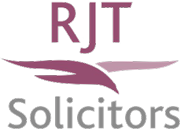A child is any person under the age of 18.
In civil proceedings, a child must have a litigation friend to conduct the court proceedings on their behalf, unless the Court otherwise directs. Often the child’s parent will act as a litigation friend although this does not have to be the case. The litigation friend must be able to conduct proceedings on behalf of the child in a fair and competent manner; must have no interest adverse to that of the child and where the child is a claimant in proceedings, they undertake to pay any costs the child may be ordered to pay.
It is important to ensure that there is no conflict of interest between the litigation friend and the child. For example, if the child is injured in a road traffic accident where the parent is the driver, it would be sensible to appoint another suitable adult to be the litigation friend just in case the other driver blames the child’s parent for the accident, thereby giving rise to a potential conflict of interest.
On their 18th birthday, a child becomes competent to conduct proceedings and no longer requires a litigation friend. In such circumstances, the litigation friend’s appointment ceases.
Where a claim by or on behalf of a child is settled, the Court must approve the terms of agreement. Within existing court proceedings this will be done by way of normal application. Where the agreement is reached before the issue of court proceedings, a formal application to the Court must be made seeking the Judge’s approval. This will involve the child, their litigation friend and their solicitor attending a brief, informal hearing before the Judge. The Judge will want to satisfy him/herself that the settlement is reasonable in all the circumstances and that the child has made a recovery in line with the medical evidence provided. In such cases, a written advice from a barrister must also be obtained to confirm that the settlement is fair.
Previously it was common practice that monies paid to a child pursuant to a settlement be paid into the Court Funds Office for investment in the Special Account until the child reaches the age of majority. However, in light of the low interest rate paid on the Special Account and the availability of higher interest rates in high street banks, judges may be prepared to consider payment into other funds, such as Government Child Trust Funds. Ordinarily, whatever the investment vehicle, the fund is paid to the child on them attaining 18.
If you wish to discuss this matter further please do not hesitate to contact RJT Solicitors on 01257 228027 for a free no obligation chat








